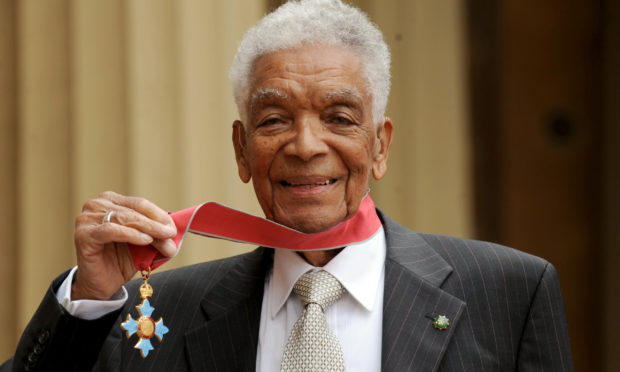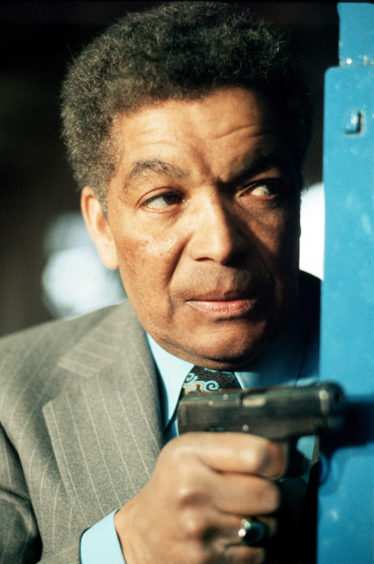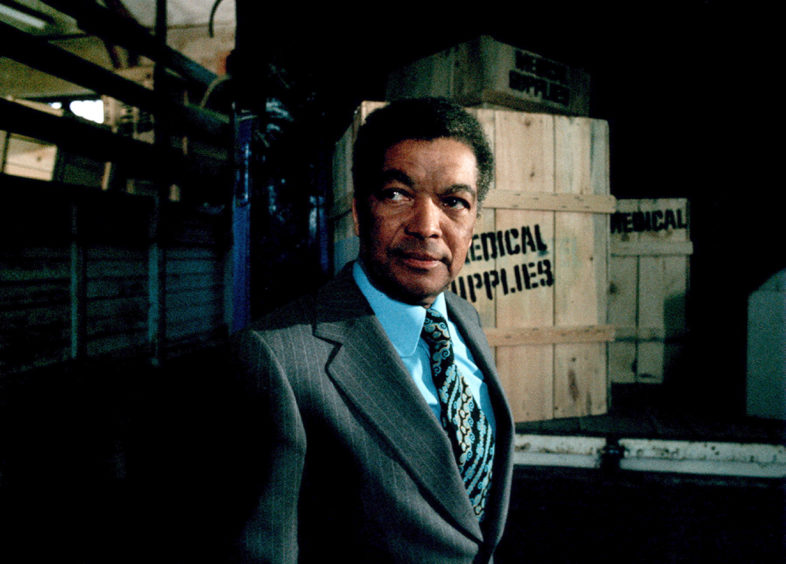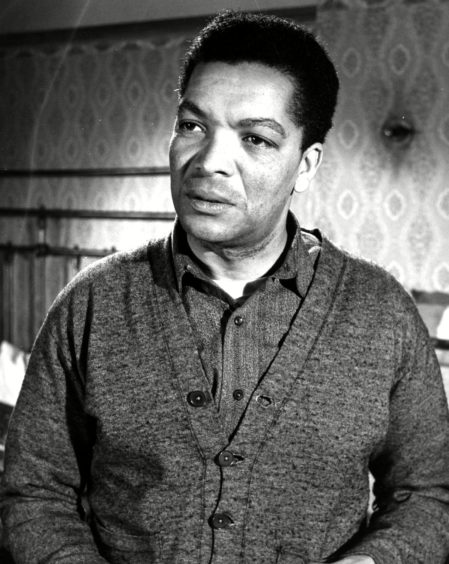Earl Cameron shook up the British acting scene as one of the first trailblazing stars to break the country’s so-called “colour bar” in the early 1950s.
The Bermuda-born talent, who died on Friday aged 102, notched up many achievements in his career – including being the first black actor to portray an astronaut on any film or TV series in the world with a role in a 1966 episode of Doctor Who.
Cameron decided to make the UK his home in 1939 after falling in love with a woman in London during the Second World War, and staying behind when his ship departed.
He became enamoured with the theatre in 1941 when a friend gave him a ticket to see a revival of Chu Chin Chow at the Palace Theatre.
Cameron, who was working at the kitchen of the Strand Corner House at the time, was fed up with menial jobs and asked if he could get him on the show.
He was eventually cast when another actor failed to turn up for a performance.
According to Cameron, he had an easier time than other black actors because his Bermudian accent sounded American to British ears.
Many other stage roles followed across the 1940s, before he moved into film in the following decade.
With his appearance in 1951’s Pool of London, Cameron became one of the first black actors to take up a starring role in a British film.
And a litany of other big screen roles followed, appearing alongside some major names.
In A Warm December in 1973, he worked with Sidney Poitier, playing the part of an African ambassador to the UK.
Cameron was considered for the role of Quarrel in James Bond film Dr No in 1962 but didn’t land the part.
But they asked Cameron back for Thunderball in 1965, in which he played Bond’s Caribbean assistant Pinder.
At the same time, he branched out into television and acted in popular series including The Prisoner, Crown Court, Jackanory, Dixon of Dock Green, Dalziel and Pascoe, and Lovejoy over the years.
The official Doctor Who Twitter account paid tribute to him over the weekend, saying: “We’re sad to report the death of Earl Cameron, who starred in ‘The Tenth Planet’ and was one of the first black actors to forge a successful career in British film and television.”
His later film appearances included a major role in Nicole Kidman thriller The Interpreter in 2005 as dictator Edmond Zuwanie.
In 2006, he appeared in a cameo as a portrait artist in the film The Queen, alongside Helen Mirren, and in 2010 he appeared in the blockbuster Inception.
Actor, writer and director Nicholas Pegg paid tribute to the pioneer.
He said Cameron was one of the “most prominent people of colour in a profession overwhelmingly white”.
Science fiction writer Neil Gaiman said the actor earned his respect in an adaptation of his book Neverwhere.
He said: “He was one of the first UK actors to ‘break the colour bar’, one of the first black actors in Doctor Who, a mainstay of cinema and television, always acting with grace and moral authority.”
Family friend Martin Beckett broke the news of his death on Saturday.
He said: “He had sheltered himself because of Covid and had not really been keen on going out. He had chest problems.
“He was a great character, very spiritual, very modest, we’re going to miss him.
“He would never take on roles that demeaned people of colour… he was often subject of a lot of racial prejudice, but he never really got angry about it. He pitied people that couldn’t accept him.”
Cameron was appointed Commander of the Order of the British Empire (CBE) in the 2009 New Year Honours.



